On Friday this week, Larry Goodman’s ABP Food Group announced some very interesting changes to its board of directors, including the appointment of John Moloney, the former CEO of Glanbia, as a non-executive director and chairman designate of the board of ABP.

John Moloney, former CEO of Glanbia, has been appointed chairman designate of ABP; Picture Dylan Vaughan.
Alongside Moloney, ABP has appointed Fergal O’Dwyer, the current chief financial officer of energy giant DCC, and Tom Kirwan, the former CEO of ABP’s UK business, as non-executive directors to the board.
ABP has also appointed Finbarr Mc Donnell, chief operations officer at ABP, and Mark Goodman, CEO of ABP’s international business and Larry Goodman’s son, as directors of the board. These five appointments will join Larry Goodman, executive chairman of ABP, and Frank Stephenson, CEO of ABP, to make up the full board of ABP.
ABP also announced that Ron Bolger, Laurence Goodman (son of Larry Goodman), John Jackson and Philip Morgan will all retire from the board of ABP.
Why are these changes significant?
At a glance, these may seem just like any other board appointment to a company or co-op. However, the appointment of John Moloney as the next chairman of ABP is eye-catching and very interesting on a number of levels.
Firstly, Moloney brings an enormous amount of business experience to the board of ABP.
During his time as CEO of Glanbia, Moloney transformed the company from one that was still involved in meat processing and other non-core activities and repositioned Glanbia in the added-value dairy category, where it became a leader in the enormously lucrative performance nutrition market.
The performance nutrition arm of Glanbia has been the engine of growth for that company for almost a decade, delivering record profits and very attractive margins.
In 2013, Moloney moved on from Glanbia and has since served on the board of Greencore and Smurfit Kappa, while also serving as chairman of DCC and Coillte, the semi-State forestry body.
In short, Moloney has very strong business credentials and a successful track record of working with public companies.
He is a high-profile appointment and will be very well known in business circles, not only in Ireland but also internationally.
What is ABP today?
Like most companies in the meat industry, ABP is a very private company and gives little away. However, from the outside, it’s very clear that ABP has undergone a transformation process of its own over recent years.

ABP Meat Plant, Clones, Co. Monaghan.
Consolidation in the Irish and UK meat-processing industry over recent years has seen ABP make a number of high-profile acquisitions, including the purchase of a 50% stake in Slaney Foods and a 50% stake in Northern Ireland meat company Linden Foods.
The Goodman-owned group has also taken majority control of Good Herdsman, the Tipperary-based organic beef company.
All of these investments in recent years has allowed ABP to consolidate its position as one of the ‘big three’ beef processors in Ireland and the UK.
Today, ABP operates meat-processing plants in Ireland, the UK and Poland and has an annual turnover of approximately €3bn.
The company has 11,000 staff employed across its various sites and buys cattle and sheep from 35,000 farmer suppliers every year.
However, ABP is no longer just a beef company. Outside of beef processing, the company has moved into new sectors that are complementary to its core business of beef processing.
Today, the ABP Group comprises four core divisions:
Beef.Proteins.Pet food. Renewables.Pet food in particular is now a major business within the ABP Group. Last year, ABP took 100% control of C&D Foods, the Co Longford-based pet food company.
C&D Foods is a €500m turnover business and the largest private-label pet food manufacturer in Europe, with manufacturing operations in Ireland, the UK, Denmark, France, the Netherlands, Austria and Spain.
ABP’s proteins division handles the by-products from the meat-processing industry and other sectors. Just last month, ABP’s proteins division bought out John Pointon and Sons, the UK-based animal by-product and proteins company, for an undisclosed sum.
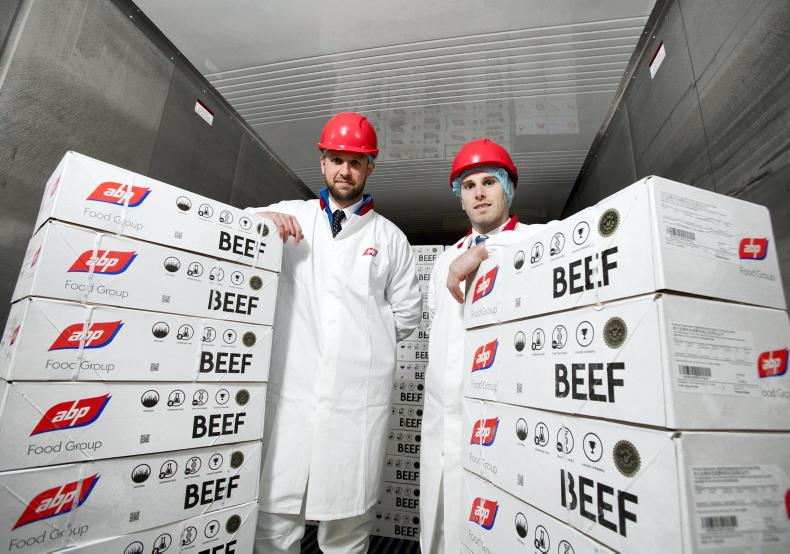
Mark Goodman (left), Managing Director of ABP International has also been appointed to the board of the ABP Food Group
Based in Staffordshire, England, John Pointon and Sons is the largest single-site by-product and pet food ingredient supplier in the UK market with a capacity of 400,000t.
However, perhaps the most interesting aspect of how the ABP Group has evolved is its renewables division, which operates under the name Olleco.
Established in 2006, Olleco collects and converts used cooking oil into biodiesel and also collects food waste, which it uses to produce biomethane, electricity, heat and organic fertiliser.
The company operates five used cooking oil processing plants, a biodiesel plant, a bulk liquid storage facility and three anaerobic digestion (AD) plants and is collecting waste food and oil from over 50,000 catering establishments in the UK and Ireland.
What could the future hold for the ABP Group?
John Moloney’s appointment as the chairman designate of ABP Food Group raises a very simple question. Is Larry Goodman preparing the ground to float ABP on the stock market?
Time will tell whether this becomes a reality, but much of the ground work has already been prepared for this possibility.
As it stands today, the ABP Food Group could be an attractive proposition for investors. If ABP was solely involved in beef processing, then investors would have little interest in such a low-margin, capital-intensive business.
However, the company has slowly diversified into a range of higher-margin activities such as renewables and pet food and profit margins in the ABP Food Group today are likely in the high single- to double-digit figures.
This, coupled with the appointment of a highly respectable chair like John Moloney, means it's not too far a stretch of the imagination that we could see shares in ABP offered to investors in the not too distant future.
On Friday this week, Larry Goodman’s ABP Food Group announced some very interesting changes to its board of directors, including the appointment of John Moloney, the former CEO of Glanbia, as a non-executive director and chairman designate of the board of ABP.

John Moloney, former CEO of Glanbia, has been appointed chairman designate of ABP; Picture Dylan Vaughan.
Alongside Moloney, ABP has appointed Fergal O’Dwyer, the current chief financial officer of energy giant DCC, and Tom Kirwan, the former CEO of ABP’s UK business, as non-executive directors to the board.
ABP has also appointed Finbarr Mc Donnell, chief operations officer at ABP, and Mark Goodman, CEO of ABP’s international business and Larry Goodman’s son, as directors of the board. These five appointments will join Larry Goodman, executive chairman of ABP, and Frank Stephenson, CEO of ABP, to make up the full board of ABP.
ABP also announced that Ron Bolger, Laurence Goodman (son of Larry Goodman), John Jackson and Philip Morgan will all retire from the board of ABP.
Why are these changes significant?
At a glance, these may seem just like any other board appointment to a company or co-op. However, the appointment of John Moloney as the next chairman of ABP is eye-catching and very interesting on a number of levels.
Firstly, Moloney brings an enormous amount of business experience to the board of ABP.
During his time as CEO of Glanbia, Moloney transformed the company from one that was still involved in meat processing and other non-core activities and repositioned Glanbia in the added-value dairy category, where it became a leader in the enormously lucrative performance nutrition market.
The performance nutrition arm of Glanbia has been the engine of growth for that company for almost a decade, delivering record profits and very attractive margins.
In 2013, Moloney moved on from Glanbia and has since served on the board of Greencore and Smurfit Kappa, while also serving as chairman of DCC and Coillte, the semi-State forestry body.
In short, Moloney has very strong business credentials and a successful track record of working with public companies.
He is a high-profile appointment and will be very well known in business circles, not only in Ireland but also internationally.
What is ABP today?
Like most companies in the meat industry, ABP is a very private company and gives little away. However, from the outside, it’s very clear that ABP has undergone a transformation process of its own over recent years.

ABP Meat Plant, Clones, Co. Monaghan.
Consolidation in the Irish and UK meat-processing industry over recent years has seen ABP make a number of high-profile acquisitions, including the purchase of a 50% stake in Slaney Foods and a 50% stake in Northern Ireland meat company Linden Foods.
The Goodman-owned group has also taken majority control of Good Herdsman, the Tipperary-based organic beef company.
All of these investments in recent years has allowed ABP to consolidate its position as one of the ‘big three’ beef processors in Ireland and the UK.
Today, ABP operates meat-processing plants in Ireland, the UK and Poland and has an annual turnover of approximately €3bn.
The company has 11,000 staff employed across its various sites and buys cattle and sheep from 35,000 farmer suppliers every year.
However, ABP is no longer just a beef company. Outside of beef processing, the company has moved into new sectors that are complementary to its core business of beef processing.
Today, the ABP Group comprises four core divisions:
Beef.Proteins.Pet food. Renewables.Pet food in particular is now a major business within the ABP Group. Last year, ABP took 100% control of C&D Foods, the Co Longford-based pet food company.
C&D Foods is a €500m turnover business and the largest private-label pet food manufacturer in Europe, with manufacturing operations in Ireland, the UK, Denmark, France, the Netherlands, Austria and Spain.
ABP’s proteins division handles the by-products from the meat-processing industry and other sectors. Just last month, ABP’s proteins division bought out John Pointon and Sons, the UK-based animal by-product and proteins company, for an undisclosed sum.

Mark Goodman (left), Managing Director of ABP International has also been appointed to the board of the ABP Food Group
Based in Staffordshire, England, John Pointon and Sons is the largest single-site by-product and pet food ingredient supplier in the UK market with a capacity of 400,000t.
However, perhaps the most interesting aspect of how the ABP Group has evolved is its renewables division, which operates under the name Olleco.
Established in 2006, Olleco collects and converts used cooking oil into biodiesel and also collects food waste, which it uses to produce biomethane, electricity, heat and organic fertiliser.
The company operates five used cooking oil processing plants, a biodiesel plant, a bulk liquid storage facility and three anaerobic digestion (AD) plants and is collecting waste food and oil from over 50,000 catering establishments in the UK and Ireland.
What could the future hold for the ABP Group?
John Moloney’s appointment as the chairman designate of ABP Food Group raises a very simple question. Is Larry Goodman preparing the ground to float ABP on the stock market?
Time will tell whether this becomes a reality, but much of the ground work has already been prepared for this possibility.
As it stands today, the ABP Food Group could be an attractive proposition for investors. If ABP was solely involved in beef processing, then investors would have little interest in such a low-margin, capital-intensive business.
However, the company has slowly diversified into a range of higher-margin activities such as renewables and pet food and profit margins in the ABP Food Group today are likely in the high single- to double-digit figures.
This, coupled with the appointment of a highly respectable chair like John Moloney, means it's not too far a stretch of the imagination that we could see shares in ABP offered to investors in the not too distant future.







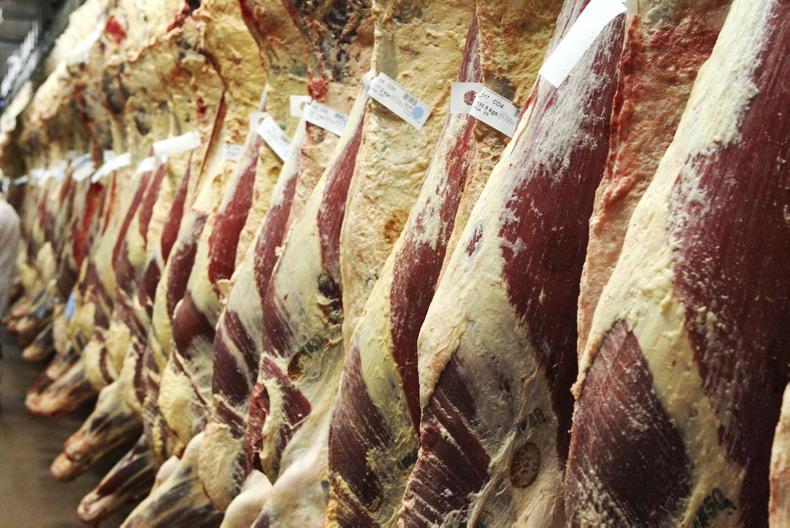

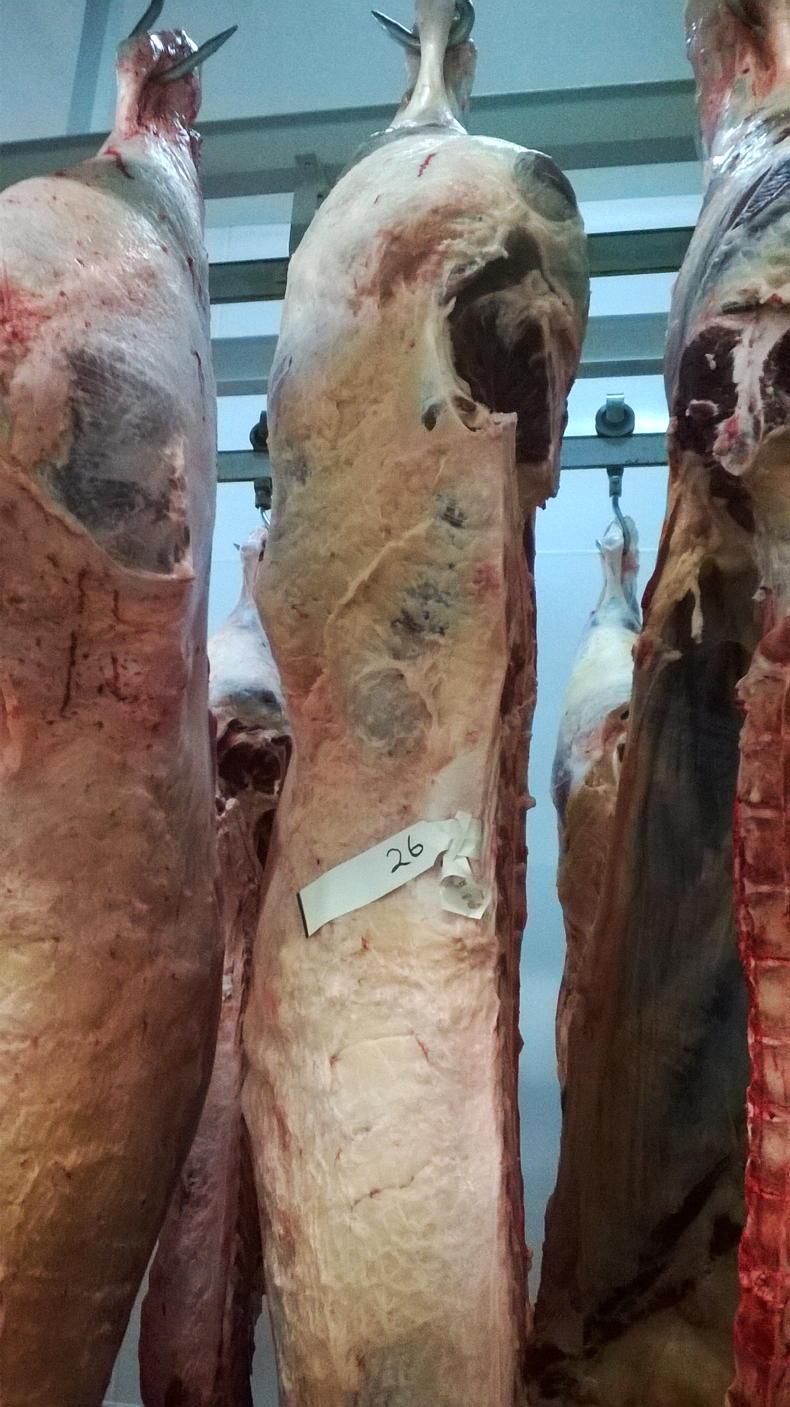
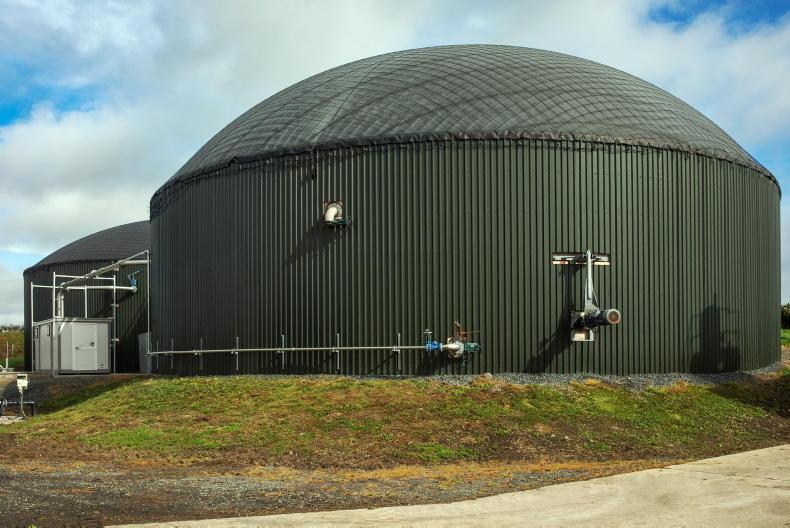
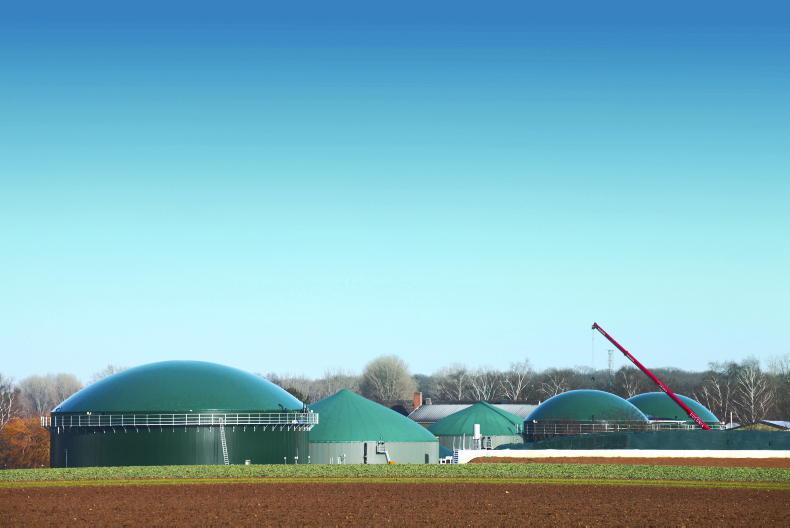
SHARING OPTIONS